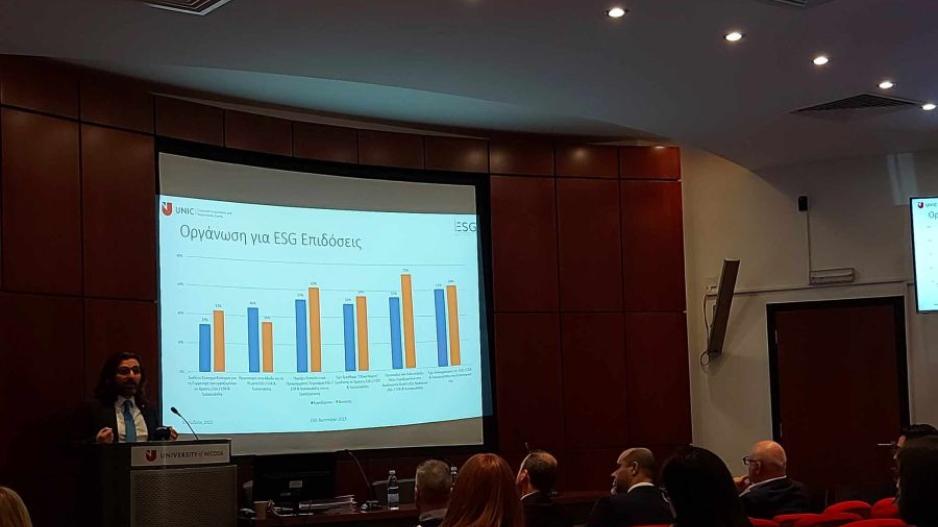Cypriot Stakeholders Express Mixed Views on Corporate ESG Performance
Only 31% of the General Public Views Corporate ESG Performance Positively
In a recent press conference held on December 19, 2023, Dr. Alexandros Antonaras, Associate Professor at the University of Nicosia’s Management School, presented the findings of the Cyprus ESG Barometer 2023. The survey, a pioneering effort to gauge perceptions on Environmental, Social, and Governance (ESG) practices within Cyprus, was conducted by the University’s Corporate Sustainability and Responsibility Centre (CSRC) and IMR. The event saw key figures like the Minister of Labor and Social Insurance, Mr. Yiannis Panayiotou, and industry leaders in attendance.
The Cyprus ESG Barometer 2023, mirroring the research developed by the Alba Graduate Business School and CSR Hellas, marks the first of its kind in Cyprus. It aims to record and compare, for the first time in Cyprus, the perceptions of three distinct populations - the general public, employees, and management executives - regarding ESG criteria and Sustainability.
-
A significant performance gap in ESG between external and internal stakeholders was noted. Only 31% of the general public views corporate ESG performance positively, with 26% ambivalent and 43% negative.
-
While the majority of the public is willing to pay a premium for products/services from sustainable ESG-compliant businesses, there is hesitancy to sacrifice salaries to work for such companies.
-
The public associates corporate ESG engagement more with profit and competition than ethical obligation.
-
Conversely, management perceives ESG commitment more as a moral obligation than a business-driven incentive.
-
Employees view their leaders as relatively humble, though there is considerable room for improvement. Humble leadership is seen as a critical lever and facilitator for ESG performance.
-
Management tends to view ESG criteria more as an opportunity than a threat, leaning towards a "do-more-good" rather than "do-less-harm" approach.
-
The primary challenges identified by management include the lack of ESG-trained workforce, support from the board, and backing from company executives.

The research also highlights the need for enhanced ESG training and education for employees and executives, improved communication of ESG performance to the public, encouragement of transparency in ESG criteria application, integration of ESG criteria into corporate strategy, and support for ESG initiatives by boards and management.
The Cyprus ESG Barometer 2023's findings suggest a pressing need for businesses to address the identified gaps and perceptions in ESG performance. As the Minister of Labor and Social Insurance emphasized, prioritizing green transition and sustainability is crucial for future progress. Industry leaders, including the Deputy Director-General of the Federation of Employers and Industrialists (OEB) Mr. Kostas Christofides, and the President of CSR Cyprus, Mr. Marinos Voukis, also echoed the importance of sustainable practices and ESG accountability for long-term business resilience and opportunity creation.






